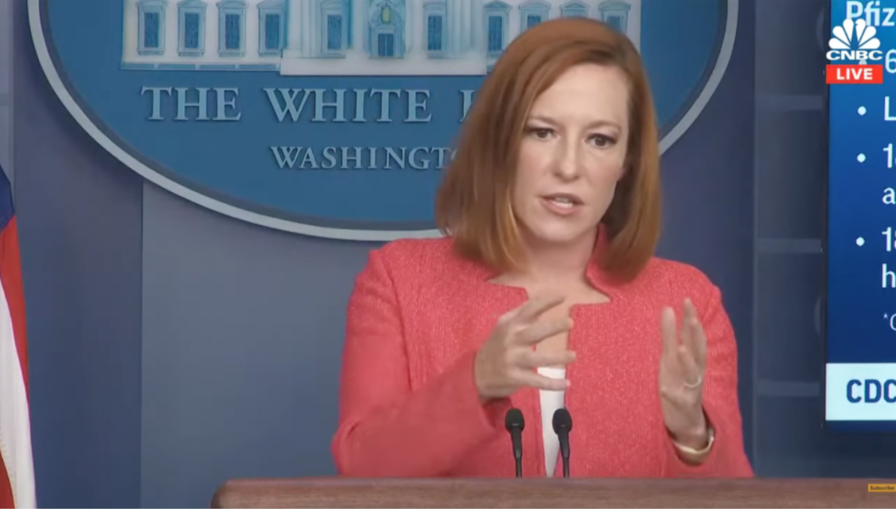Elon Musk made a bold claim on Twitter on Tuesday. The Tesla founder said he would “pay more taxes than any American in history this year.”
Is the claim true? Only the IRS knows for certain who the largest taxpayer in US history is, but Forbes says Musk appears to be right.
“The eccentric billionaire (and the world’s richest person) likely owes the federal government at least $8.3 billion for 2021,” Forbes reports.
Business Insider projects Musk’s tax bill is even higher when state taxes are included.
“Taxes on his stock, nearly a billion in Net Investment Income Tax, and the billions he likely owes California could add up to about $12 billion in total,” report Jason Lalljee and Andy Kiersz.
CNBC, meanwhile, figured Musk’s total tax bill was even higher—$15 billion.
The bulk of Musk’s tax bill stems from the nearly $13 billion in Tesla stock sold as of December 13, which is even larger than the record $10.2 billion worth of Amazon stock Jeff Bezos sold last year.
Freeloading Off Everyone Else?
Whatever Musk’s tax bill ends up being, it’s worth examining the context of his claim. Musk was not bragging that he had the largest tax bill in history; on the contrary, he was responding to Sen. Elizabeth Warren, who—somewhat unfathomably—lashed out at Musk for not paying his fair share of taxes.
“Let’s change the rigged tax code so The Person of the Year will actually pay taxes and stop freeloading off everyone else,” Warren tweeted.
You read that correctly. Warren, the progressive lawmaker from Massachusetts, called Musk a freeloader. It’s possible that Warren didn’t know that Musk is set to pay more in taxes than any American—perhaps human being—in history, but it’s more likely she simply does not care and is comfortable peddling the fiction that Musk isn’t paying taxes. Warren made this clear in subsequent remarks after Musk had responded to the Senator.
“He’s the richest guy in the world, and he just doesn’t want to pay taxes,” Warren said. “That’s what it’s all about for me.”
She continued:
“I gotta say, on behalf of every school teacher who pays taxes, on behalf of every waitress who pays taxes, on behalf of every American citizen who goes out and works for a living and pays taxes …that’s just fundamentally wrong. We have a broken tax system that lets Elon Musk freeload off everyone else, and it needs to stop.”
Warren’s claim that Musk is a “freeloader” is preposterous, of course. Taking the lowest estimate on what Musk is expected to pay, he’ll cough up more in taxes than the entire state of Massachusetts collected in sales and use taxes through the first half of 2021—from its 7 million residents.
Moreover, unlike Warren, who collects a salary from the government, Musk earned much of his wealth by creating value. Tesla employs nearly 80,000 people who’ve built no fewer than 623,000 energy-efficient cars in 2021 alone. Its market cap is nearly $1 trillion, which has made untold numbers of Tesla employees and shareholders wealthy. Warren, on the other hand, creates nothing. Every dollar of her $174,000 salary—and the money she pays her staff with—comes from funds confiscated from taxpayers. Every dollar she authorizes to be spent was taken from someone else who earned it.
Musk’s success should be applauded, but instead Warren—the true freeloader—accuses him of “freeloading” and believes he should be paying more.
A Philosophy Built on Envy
What really appears to bother Warren is that Musk has so much. In other words, it’s a politics rooted in envy.
Envy is considered one of the Seven Deadly Sins, and for good reason. It’s a corrosive disposition that harms both individuals and societies. The celebrated philosopher Immanuel Kant described envy as,
“…a propensity to view the well-being of others with distress, even though it does not detract from one’s own. [It is] a reluctance to see our own well-being overshadowed by another’s because the standard we use to see how well off we are is not the intrinsic worth of our own well-being but how it compares with that of others. [It] aims, at least in terms of one’s wishes, at destroying others’ good fortune.”
The pre-Socratic philosopher Democritus (c. 460 BC – c. 370 BC)—in a wonderfully libertarian quote—once warned of the danger of envy and purpose of the law.
“[Just] laws would not prevent each man from living according to his inclination, unless individuals harmed each other; for envy creates the beginning of strife,” he wrote.
Strife is precisely what Warren and those who share her philosophy are sowing, and it’s clear she and others view Musk’s good fortune with distress. If that’s not envy, I don’t know what is.

Jon Miltimore
Jonathan Miltimore is the Managing Editor of FEE.org. His writing/reporting has been the subject of articles in TIME magazine, The Wall Street Journal, CNN, Forbes, Fox News, and the Star Tribune.
Bylines: Newsweek, The Washington Times, MSN.com, The Washington Examiner, The Daily Caller, The Federalist, the Epoch Times.
This article was originally published on FEE.org. Read the original article.


